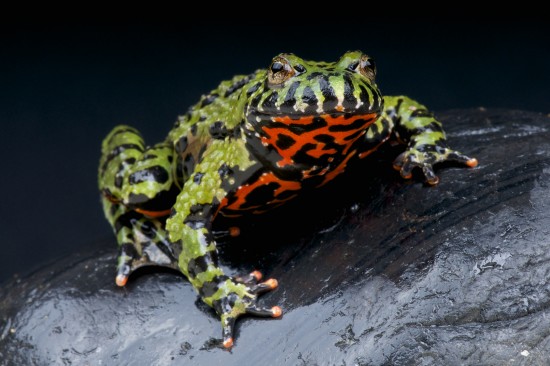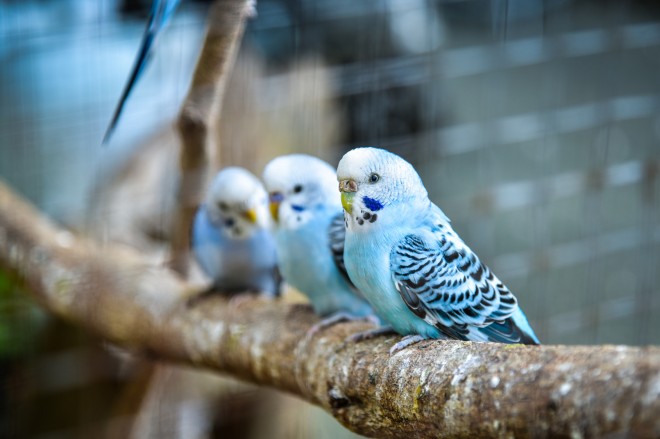
What Is Freshwater Aquarium Substrate?
Substrate is the matter, usually gravel or sand, which is placed on the bottom of fish tanks. Substrate provides a reference point for your aquatic friends and reduces glare from the glass, which has been known to promote irritation in a lot of aquatic animals.
There is a fundamental difference between the substrates used in a freshwater aquarium and those that may be used in saltwater aquariums. The chemical properties of the waters are different and to use saltwater corals in freshwater tanks will elevate the pH to dangerous levels for most all freshwater fish species.
It is safest to use aquatic approved products that are marketed as sterilized, neutral material from neighborhood or online aquarium stores. You could collect your own from natural sources however that option is only recommended for those individuals with proper knowledge on the subject of organic materials and the resulting impact on water composition.
Under no circumstances should you use sea sand collected from ocean shores ?it contains living organisms and contaminates that will pollute your aquarium. If you do choose to source your own material, be sure to perform comprehensive water tests on it for a few weeks before "surprising" your fish!
Top Reasons To Use Freshwater Aquarium Substrate.
The most significant and overlooked reason for using substrate is for the biological filtration properties. Using coarse gravel or sand for your bottom material allows for massive volumes of growth surface for the beneficial bacteria colonies to flourish. The size is critical not just for the surface area but also for the aeration properties. If the gravel becomes compacted, as tiny substrates are known to do, oxygen free areas will be allowed to develop resulting in the development of anaerobic bacteria colonies, the ones responsible for that rotten egg smell. This can turn out to be lethal for your fish!
As we all know, nothing is ever perfect. The pH requirements for most freshwater fish are very narrow and the pH range of your available water resource might not fall inside that range. Certain compounds can be added to your aquarium that can increase or decrease the pH and water hardness levels, permitting you to use water from your tap and still maintain good stability in your fish tank.
What Are Some of Your Choices?
Gravel is the most common. The bags of vibrantly colored pebbles on the shelf are normally epoxy covered quartz, although there is an ever growing selection of natural products from global locations that are inert, sterilized and safe to put in your freshwater ecosystem.
Sand is also a favored choice. If you do not buy sand approved for aquariums, it must be either play sand, which has been sterilized or sandblast media. As discussed above, do not use ocean sand!
Aragonite, dolomite and crushed corals are safe products that can be used to raise your water hardness and pH levels. Be forewarned, these can have a significant impact; there are other choices, such as marble that has a gentler effect.
Peat is good for lowering (softening) your water hardness and pH and is a great choice for planted tanks.
Regarding plants, using the special substrates offered for aquatic plants is not essential but it certainly enhances their growth potential. These special compounds have a high cation exchange rate, basically meaning they have distinct properties which improves their capability to accumulate and store nutrients for consumption by the plants roots.
Vermiculite and laterite are two such materials that are put on the bottom of aquariums with additional layers of gravel or sand placed on top. Other products on the market, such as Fluorite (by Seachem) or Floracor Red (by Activ-Flora) can be put in as one layer.
There are many factors to take into account when starting a freshwater aquarium and all are equally important, still the substrate you choose will define the theme of your entire tank, make sure you put some serious thought on the matter before choosing.
 Choosing And Caring For A Fire Belly Toad
Choosing And Cari
Choosing And Caring For A Fire Belly Toad
Choosing And Cari
 Transitional Cell Carcinoma In The Dog
Transitional Cell
Transitional Cell Carcinoma In The Dog
Transitional Cell
 Twenty Five Fun And Interesting Facts About Budgies
Twenty Five Fun A
Twenty Five Fun And Interesting Facts About Budgies
Twenty Five Fun A
 7 Breeds Of Dog That Do Well In Apartments
7 Breeds Of Dog T
7 Breeds Of Dog That Do Well In Apartments
7 Breeds Of Dog T
 Cat Breeding - The Arrival And Early Days Of Your Kittens
Cat Breeding - Th
Cat Breeding - The Arrival And Early Days Of Your Kittens
Cat Breeding - Th
Copyright © 2005-2016 Pet Information All Rights Reserved
Contact us: www162date@outlook.com